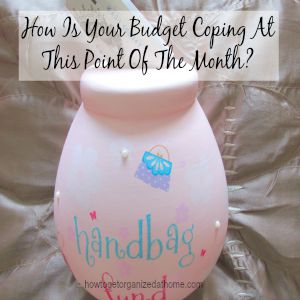Not Tracking Your Budget
In a personal or family budget all sources of income (inflows) are identified and expenses (outflows) are planned with the intent of matching outflows to inflows (making ends meet).
Making a budget is the best move with controlling your finances, it allows you to allocate money to the different areas. It gives you control and not allowing your finances to take control.
However, getting your budget to work for the whole month is a different story; you must check your budget is on track. It is important that you are tracking the money coming into the home and the money that is going out. If you have an overspend in one area you can adjust the spending and bring the budget back under control.
The problems that arise through not tracking
It is possible to have problems when you don’t track your spending and your budget. If you are spending too much in one area, it will have an effect on the money that you have available for other areas. This can lead to insufficient money for bills and other commitments.
This is why it is vital that you consider what you spend money on, and how this spending reflects in your budget.
If you are looking for a positive effect of creating a budget, then you must keep checking that you are on track with where you are spending your money and that you haven’t forgotten to pay a bill or have spent money allocated for a different area.
Tracking your purchases is a great way to see what triggers your over spending; this allows for an improved budget the following month, because you can look for the triggers and you can adjust the spending or increase budget areas to tackle the deficit.
Analysing spending patterns are a great way to look at what you actually need each month and to highlight patterns of over spending. This allows you to consider ways in which you can address the spending. It sometimes isn’t noticeable that you are spending money; it has become a habit which you are unaware of. By tracking your spending, it can bring to life a habit that you perform on a regular basis but one that you don’t notice you participate in.
Reasons for not tracking
There are many reasons why some people are afraid to track their spending and to make sure their budget is on track. This is not going to help in the long run. This is due to readjusting the budget at the end of the month as opposed to when you are making changes mid-month.
It is possible, if you are unable to track your budget during the month, that you are unable to face up to your financial situation. If you know that the money coming in each month isn’t going to pay all the bills, then burying the information until the end of the month is not going to help, in fact it is going to make it worse.
Therefore, if you are great at creating your budget but then forget about the budget for the rest of the month, this isn’t a working budget.



